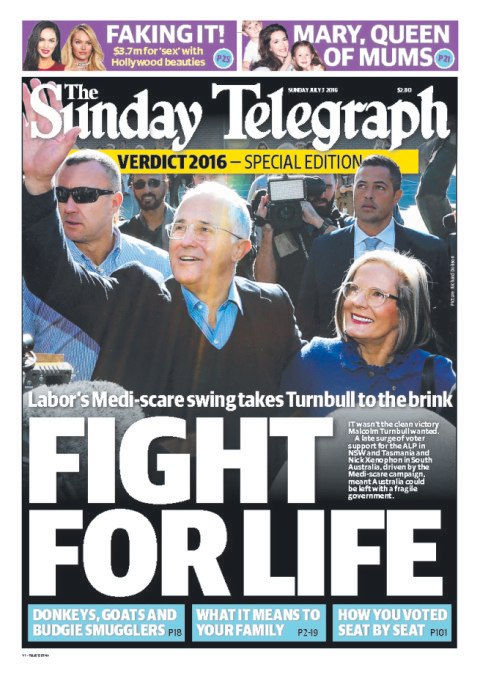
The 2016 Federal Election is still too close to call and neither major party is in a position to claim victory.
As the votes started to be counted it became clear early on it was going to be a tight race, with all of the election night panels on TV quickly proclaiming there was going to be no speedy result. However, what emerged almost at the close of polling was that Labor had done much better than was initially predicted.
The Coalition entered the election as the favourite to win, but Labor really gave them a run for their money. Turnbull's government has lost its large majority in the House of Representatives and a hung parliament looms, with many seats still remaining uncertain.
Such was the extent of the confusion that Turnbull didn't front up to the media some time after it was clear a result on the night was unlikely, drawing criticism from conservative radio presenters Allan Jones and Andrew Bolt.
The election campaign was the longest ever held in Australia, with Prime Minister Malcolm Turnbull calling yesterday’s election in May.
Going into the campaign, the Libs outspent Labor when it came to advertising and also ran a more positive ad campaign, according to analysis by Ebiquity. The two major parties accounted for 90% of the total election spend, with the Liberal Party spending $6 million and Labor Party spending $4.7 million – a difference of almost 30%.
The Coalition’s campaign was centred around the concepts of jobs, growth and stability. Labor chose to focus on health and education, including a scare campaign on a potential privatisation of Medicare and a higher GST.
As to the impact of the election on the media landscape, when Turnbull toppled Abbott it was thought that media reform would be on the former communications minister’s radar, with Megan Brownlow, PwC's executive director of media, telling AdNews there are “no hurdles” for reform with Turnbull in power.
“I can't see why he wouldn’t do it, because he could also get stung by criticisms of inaction [if he doesn’t],” she says.
Turnbull was the deputy chair of a parliamentary committee into media reform in 2013 that strongly recommended legislative changes, including dismantling the 75% reach rule.
“It never happened because Tony Abbott said he didn't want to pick 'unnecessary battles'," Brownlow adds.
Turnbull also said the reach rule was no longer relevant in the age of the internet. Both reforms are part of current communications minister Mitch Fifield's media reform package, which was going through senate scrutiny before the election was called.
If there is a hung parliament or change in government, it will be interesting to see if media reforms will be high on the agenda.
Here are a few of today's newspaper front pages.



Have something to say on this? Share your views in the comments section below. Or if you have a news story or tip-off, drop us a line at adnews@yaffa.com.au
Sign up to the AdNews newsletter, like us on Facebook or follow us on Twitter for breaking stories and campaigns throughout the day.


